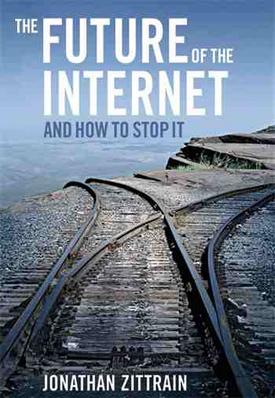My Personal Income Streams
As an update to this post I’ve more recently written one on How I make Money Blogging which highlights the most profitable ways that I use blogs to generate income. I’ve also written extensively on how bloggers make money in ProBlogger the Book.
How do bloggers make money from blogs?
 I’ve been reflecting this week about the amazing diversity of opportunities that are opening up for bloggers to make money from blogging.
I’ve been reflecting this week about the amazing diversity of opportunities that are opening up for bloggers to make money from blogging.
I’ve long advised that bloggers seeking to make money from blogging spread their interests across multiple revenue streams so as not to put all their eggs in one basket.
The wonderful thing is that this is becoming easier and easier to do 2005 has seen many options opening up. I thought I’d take a look at some of the methods that bloggers are currently using to make money through blogs.
Income Streams for Bloggers - How to Make Money Blogging
Advertising Programs - Perhaps the most obvious changes in the past few months have been with the addition of a variety of viable advertising options for bloggers looking to make money from their blogs. The most common way bloggers seem to earn money online is via the contextual ad program from Google - Adsense. A more recent addition that many are using successfully are Chitika’s eMiniMalls and WidgetBucks, Text Link Ads.
Azoogle Ads, Intelli Txt, DoubleClick, Tribal Fusion, Adbrite, Clicksor, AdHearUs, Kanoodle, Pheedo, TextAds, Bidvertiser, Fastclick and Value Click (to name just some of the options) and there is a smorgasbord of options. Of course there is more to come with MSN Adcenter and YPN both in beta testing and with a variety of other advertising system currently in development (YPN is only available to US publishers).
Lastly there’s BlogAds - one of the first blog specific ad networks.
RSS Advertising - The past 12 months have seen some advances in RSS Advertising also. I’m yet to hear of any bloggers making big money blogging through it to this point - but as improvements are made to the ad programs exploring this I’m sure we’ll start to see examples of it being profitable.
Sponsorship - In addition to the array of advertising programs that are available to join there is a growing awareness in the business of the value and opportunity that exists for them to advertise directly on blogs. I’m hearing more and more examples of this and have been fortunately to have a couple of ad campaigns of my own in the past month - one with Adobe a couple of weeks ago and another just completed with Ricoh for a new digicam over at my Digital Camera Blog. These are not isolated cases - as I say I know of many blogs exploring sponsorship with advertisers at present and suspect we’ll see more of it in the year ahead. Sponsorship is also happening on a post by post basis with some bloggers being paid to write on certain topics by companies - either in one off or a regular fashion - and they are able to make big money from their blogs doing so.
Affiliate Programs - There are larger affiliate programs like Amazon, Linkshare, Clickbank and Commission Junction but also literally thousands of others from the large to the very small.
Digital Assets - Increasing numbers of bloggers have been developing other digital assets to support and add revenue streams to their blogs. By this I mean that I’m increasingly seeing e-books, courses and tele-seminars being run by bloggers. My recent foray into this with the first series of the six figure blogging course that Andy and I ran a few weeks ago and have just released the study version of. This type of activity will only increase in future - in fact this week I’ve seen numerous examples of bloggers running courses.
Blog Network Opportunities - with the rise in popularity of Blog Networks - bloggers are also being presented with more places to earn an income from their blogging - by writing for and with others. While it might be difficult to get a writing gig with one of the bigger networks - there are plenty who are always asking for new bloggers to join and who are willing to pay bloggers using a variety of payment models. While there are distinct advantages of blogging for yourself - blogging for an established network who will handle a lot of the set up/promotion/admin/SEO etc has it’s advantages also. More and more bloggers are combining writing for themselves on their own blogs with taking on blog network blogs as additional income streams.
Business Blog Writing Opportunities - as blogging has risen in it’s profile as a medium more and more businesses are starting blogs. Many of these companies have internal staff take on blogging duties - but an increasing number of them are hiring specialist bloggers to come on and run their blogs. I know of a number of bloggers who in the past month or two have been approached for such paid work. Check out Bloggers for Hire if you’re looking for this type of work.
Non Blogging Writing Opportunities - Also becoming more common are bloggers being hired to write in non blogging mediums. Manolo’s recent coup of a column in the Washington Post is just one example of this as bloggers are increasingly being approached to write for newspapers, magazines and other non blog websites. Along side this is the rise of bloggers as published book authors - this is to the extent that one blogger I spoke with this week complained to me that they were one of the few bloggers than they knew who didn’t have a book deal!
Donations - Tip Jars and donation buttons have been a part of blogging for years now but this last year saw a number of bloggers go full time after fund raising drives. Perhaps the most high profile of these was Jason Kottke of kottke.org who through the generosity of his readership was able to quit his job and become a full time blogger.
Flipping Blogs - Also more common in 2005 was the practice of ‘Blog Flipping’ - or selling of blogs. This has happened both on an individual blog level (I can think of about 20 blogs that sold this year) but also on a network level (the most obvious of these being the 8 figure sale of Weblogs Inc to AOL).
Merchandising - My recent attempt to sell ProBlogger.net T-shirts wasn’t a raging success, but it is an example of how an increasing number of bloggers are attempting to make a few extra dollars from their blogs by selling branded products through programs like Cafepress. While I didn’t have a lot of success with merchandising - quite a few larger blogs are seeing significant sales - especially blogs with a cult following. I’m not at liberty to discuss details - but I know of one largish blog which will see sales over $20,000 in merchandise for the calendar year of 2005.
Consulting and Speaking - While it has been popular for established consultants to add blogs to their businesses we’re also starting to see bloggers with no consulting background able to make money by charging readers for their time in consulting scenarios BECAUSE of the profile that their blogs have built them. Blogging has the ability to establish people as experts on niche topics and we all know the value of being perceived as an expert. I spoke to one blogger last month who charges himself out at over $200 an hour for speaking and consulting work - his area of expertise was something that he knew little about 18 months ago - but through his blog he’s become a leader in his field and a minor celebrity in his industry.
As time rolls on there are more and more ways that bloggers make money from their blogs opening up. Feel free to suggest your own ideas and experiences in comments below.
Update: Looking for more information on how to make money blogging? Here’s a post I wrote talking about my own experience - particularly looking at the top ways that I make money from blogs.
Also check out ProBlogger the Book for a comprehensive guide to making money from blogs.













 I’ve been reflecting this week about the amazing diversity of opportunities that are opening up for bloggers to make money from blogging.
I’ve been reflecting this week about the amazing diversity of opportunities that are opening up for bloggers to make money from blogging.  The iPhone is the opposite. It is sterile. Rather than a platform that invites innovation, the iPhone comes preprogrammed. You are not allowed to add programs to the all-in-one device that Steve Jobs sells you. Its functionality is locked in, though Apple can change it through remote updates. Indeed, to those who managed to tinker with the code to enable the iPhone to support more or different applications,4 Apple threatened (and then delivered on the threat) to transform the iPhone into an iBrick.5 The machine was not to be generative beyond the innovations that Apple (and its exclusive carrier, AT&T) wanted. Whereas the world would innovate for the Apple II, only Apple would innovate for the iPhone. (A promised software development kit may allow others to program the iPhone with Apple’s permission.) Jobs was not shy about these restrictions baked into the iPhone. As he said at its launch: We define everything that is on the phone. . . . You don’t want your phone to be like a PC. The last thing you want is to have loaded three apps on your phone and then you go to make a call and it doesn’t work anymore. These are more like iPods than they are like computers.6
The iPhone is the opposite. It is sterile. Rather than a platform that invites innovation, the iPhone comes preprogrammed. You are not allowed to add programs to the all-in-one device that Steve Jobs sells you. Its functionality is locked in, though Apple can change it through remote updates. Indeed, to those who managed to tinker with the code to enable the iPhone to support more or different applications,4 Apple threatened (and then delivered on the threat) to transform the iPhone into an iBrick.5 The machine was not to be generative beyond the innovations that Apple (and its exclusive carrier, AT&T) wanted. Whereas the world would innovate for the Apple II, only Apple would innovate for the iPhone. (A promised software development kit may allow others to program the iPhone with Apple’s permission.) Jobs was not shy about these restrictions baked into the iPhone. As he said at its launch: We define everything that is on the phone. . . . You don’t want your phone to be like a PC. The last thing you want is to have loaded three apps on your phone and then you go to make a call and it doesn’t work anymore. These are more like iPods than they are like computers.6